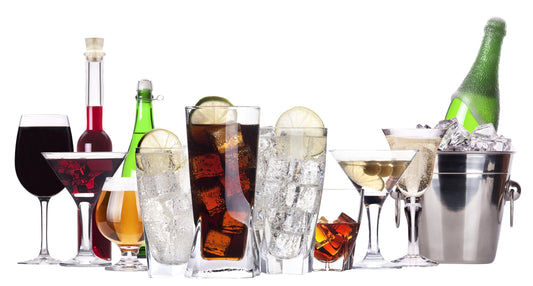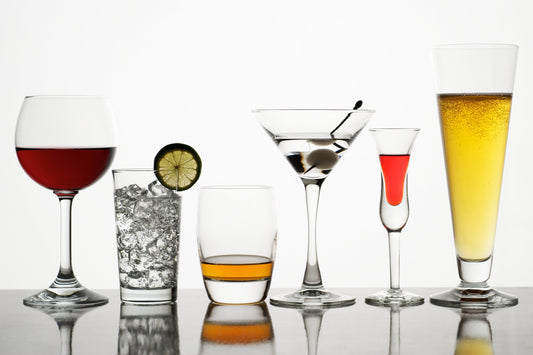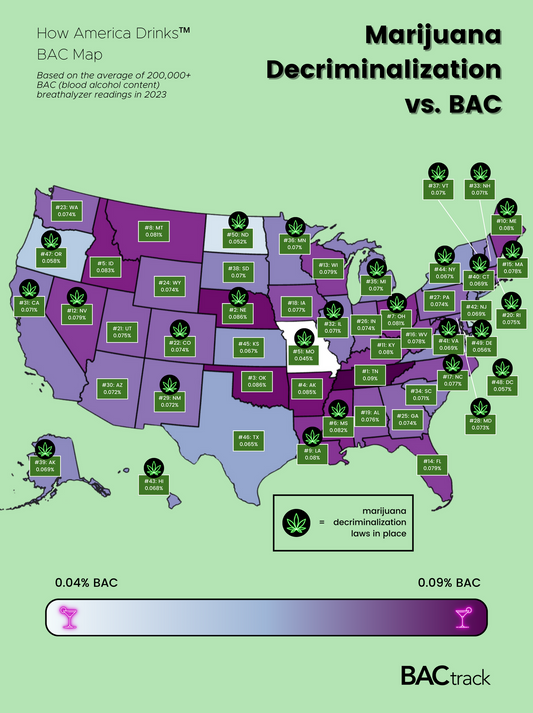Are Humans Genetically Inclined to Drink Alcohol?
Are Humans Genetically Inclined to Drink Alcohol?

Some use it to relax, others sell it in their place of business, still others are forced to solicit the help of friends, family, and medical professionals to stay away from it. It’s impossible to deny: alcohol plays a powerful role in our lives as Homo sapiens. Even for those who don’t drink at all are affected by it in some way—sometimes significantly.
One person who understands this fact more deeply than most is Professor Robert Dudley of the University of California, Berkeley. Growing up with an alcoholic father, he long wondered what caused the destructive allure of alcohol. Working as a young scientist in Panama, he observed monkeys eating ripe fruit, which likely contained small amounts of fermented sugars, and the thought occurred to him: could our attraction to alcohol be evolutionary?
"I thought it was too simple an idea not to have been thought of previously," he later said. But he found no record of it.
Thus, the “drunken monkey hypothesis” was born. Fifteen years after conceiving the idea, Dudley published a book on the topic, called, The Drunken Monkey: Why We Drink and Abuse Alcohol.
The Science Behind the Monkey
For 40 million years, primate diets were rich in fruits, and in the humid tropical climate where early human evolution took place, microscopic fungi called yeast on fruit skins and in the fruit turned fruit sugars into ethanol—a chemical better known today as alcohol. The alcohol molecule had a certain smell that diffused from the fruit, and identified it as ripe for consuming.
In these pre-civilization times, competition among the primates for the ripest fruits was intense. Darwinism dictated that those with the fastest limbs and keenest noses could identify the smell of alcohol to find the ripe fruit first. Those monkeys would live long, prosper, and pass on their genetics. As BACtrack Advisor, Amitava Dasgupta, a professor at the University of Texas Health Sciences Center said on this topic, "Fossilized teeth show that fruit was a major component in the primate diet between 45-34 million years ago. Some of the closest ancestors of humans—gorillas, chimpanzees, and orangutans—ate diets based on fruit. Primates are known to have a higher olfactory sensitivity to alcohol than other mammals."
And it wasn’t just the monkeys. Everything from primates and other mammals to insects and reptiles began to use the scent of ethanol as a cue to find ripe fruit. Ethanol very well could have been a catalyst in the evolution of many species.

Moving on to Bigger and Better Meals
As primates evolved, their diets turned to roots, tubers, and meat. Although our ancestors stopped relying heavily on fruit, it is possible that the taste for alcohol arose during our long-shared ancestry with primates.
Interestingly, monkeys usually prefer ripe fruits with approximately 1% alcohol content, but tend to avoid overripe fruits with 4% or more. While stories of drunk animals may get attention on the web, in the wild, they are extremely rare. As Dudley himself said, "Overt inebriation is probably a bad idea in the animal kingdom.”
Indeed, the only animals foolish enough to get visibly intoxicated intentionally are us humans.
Next time, you indulge your genetic predisposition, use a BACtrack Breathalyzer to stay informed of your alcohol level and always make safe, smart decisions.



